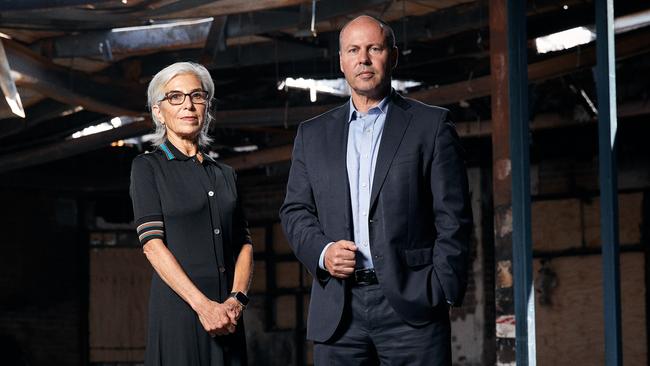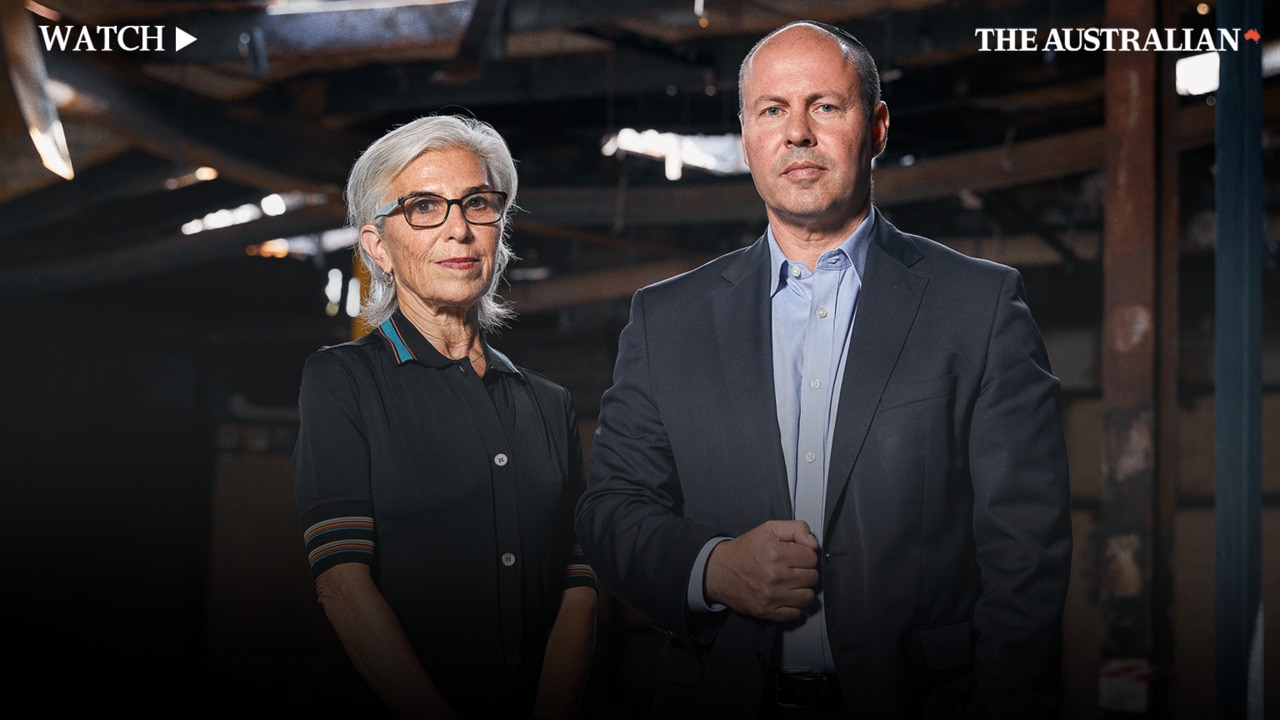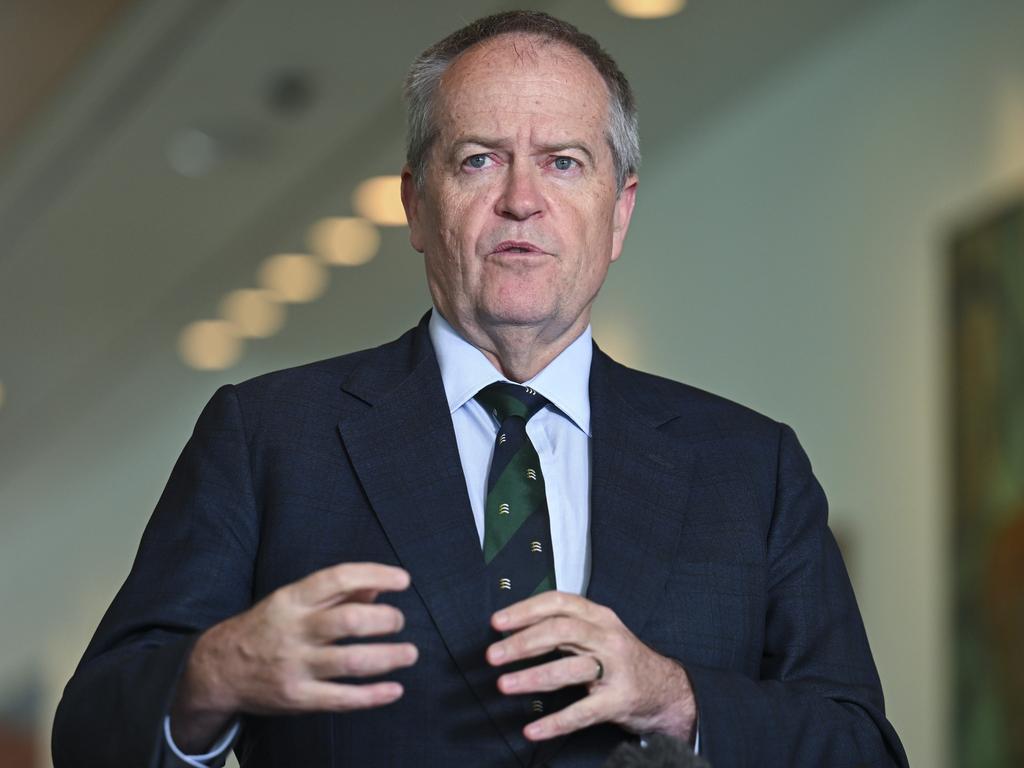Dor Foundation: From the ashes comes a plan to tackle the growing scourge of anti-Semitism
Josh Frydenberg and Elana Rubin have launched the Dor Foundation to work directly with organisations across the country to better understand what anti-Semitism is and how to build tolerance, understanding and social cohesion.

Standing for the first time amidst the burnt-out ruins of the Melbourne synagogue firebombed in a terror attack, Josh Frydenberg shakes his head in sorrow and anger. Australia “must no longer tolerate the intolerant”, says the former treasurer. “This is not about what is happening in the Middle East, it’s about what is happening in Australia, it’s about the type of society we are.”
Standing next to him under the buckled and blackened metal roof is Jewish businesswoman and Reserve Bank board member Elana Rubin, the daughter of a Holocaust survivor.
“It’s such a confronting sight to see this place of faith and worship be attacked in this way,” she says of the Adass Israel Synagogue, which was torched in December by terrorists who poured accelerant around the prayer hall and set it alight. They are still on the run.
Frydenberg and Rubin have met here, at ground zero of the current wave of anti-Semitism, to launch a fightback against hate, division and despair.
At a time when threats to Australian Jews, from nurses in Bankstown to caravans with explosives, are growing by the day, Frydenberg, Rubin and a group of leaders across government, business and not-for-profits are charting a positive way forward.
They have launched the Dor Foundation, a not-for-profit, nonpartisan organisation to work directly with organisations across the country to better understand what anti-Semitism is and how to build tolerance, understanding and social cohesion.

“We are coming together, Jewish and non-Jewish Australians, to counter that hate, to put in place new initiatives, to work with existing groups, to work with other communities, to ensure that we win this fight,” says Frydenberg. “Because it’s not just Jewish communities. This is Australia. We need to protect and uphold and promote Australian values.”
The foundation will leverage research and data to drive new initiatives, focusing initially on universities, which have been a hotbed of anti-Semitism, and also on the online space, which has spewed and spread hatred against Australian Jews in the 15 months since the war in Gaza began.
The foundation, chaired by Frydenberg and with Rubin as deputy chair, includes high-profile “guardians” including Nina Bassat, a director of the Melbourne Holocaust Museum, professor Jennifer Westacott, chancellor of Western Sydney University, Kelly Bayer Rosmarin, former chief executive of Optus, and Suzi Carp, former chairman of Murdoch Children’s Research Institute.
“What the Dor Foundation will do is to use research and data to focus on the key areas that fan anti-Semitism and hate,” says Rubin.
“We will take a long-term approach and will work with all groups in the community to address the situation and rebuild an accepting and strong Australian community.”
Frydenberg, the son of a Holocaust survivor and one of the country’s leading voices against anti-Semitism, has been critical of the Albanese government’s slow response to the rise of anti-Semitism, but he says the foundation will be strictly nonpartisan.
“Over the last 15 months, we’ve seen the Jewish community subject to an intensity in anti-Semitism in Australia that we’ve never ever seen before, and we are focused as a group of Jewish and non-Jewish Australians on trying to turn back that tide of hate by building more resilience and tolerance across our community,” he says.
The idea for the foundation was born after it became obvious that the rise in anti-Semitism since the Hamas massacre of Israelis on October 7 and the subsequent war in Gaza was not a temporary blip.
Rubin says she grew up in an environment where she never felt under threat for being Jewish.
“I’ve worked across a range of organisations and sectors. I went through the public education system, the university system in Melbourne, and I look now at what’s happening, and I think we all want to reclaim the open and accepting environments that we probably experienced ourselves,” she says.
Professor Westacott says: “As an educator and business person I have seen a dangerous rise in anti-Semitism, which I believe is a threat to Australia’s way of life. As a non-Jewish person, I see myself as having a moral responsibility to be part of a movement to stamp out anti-Semitism.”








To join the conversation, please log in. Don't have an account? Register
Join the conversation, you are commenting as Logout